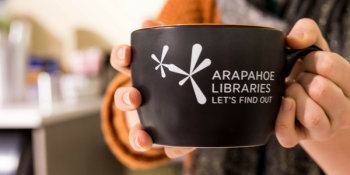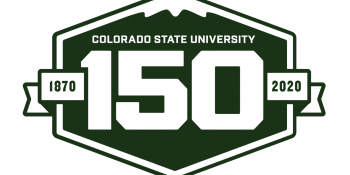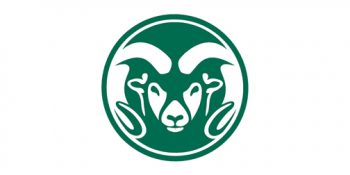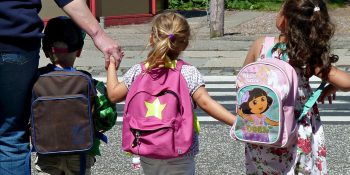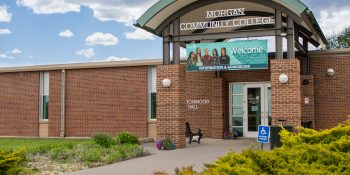How far apart should the trumpet section be from the trombone section at my first band rehearsal during COVID-19?
How many singers can rehearse together or perform on my school’s stage?
Can dancers resume their rehearsals and performances? Can actors rehearse and perform scenes with other actors? Should I cancel my group’s performance schedule, or wait and see?
These are questions that are on the minds of thousands of band leaders, choir directors, acting coaches, dance instructors, performers and countless others connected to the performing arts. And a unique team at Colorado State University is searching for those answers.
Led by John Volckens, a professor of mechanical engineering in the Walter Scott, Jr. College of Engineering, and Dan Goble, director of the School of Music, Theater, and Dance, the team is launching a study – Reducing Bioaerosol Emissions and Exposures in the Performing Arts: A Scientific Roadmap for a Safer Return from COVID19.
Researchers will aim to determine how far airborne particles and droplets are projected by those playing wind and brass instruments, singers, actors and dancers, and whether steps can be taken to protect both performers and audience members from the risks of co-exposure to COVID19.
Interdisciplinary approach
The team, which includes Rebecca Phillips, CSU’s director of bands in the College of Liberal Arts; Charles Henry, chemistry professor in the College of Natural Sciences; and Dr. Heather Pidcoke, the university’s chief medical research officer, hopes to collect and analyze data starting in early to mid-July. The multidisciplinary team also includes experts in environmental health, Kristen Fedak and Nick Good, from the College of Veterinary Medicine and Biomedical Sciences, and engineers Christian L’Orange, John Mehaffy and Jacob Fontenot. They hope to be able to recommend best practices for those in the performing arts in a timely manner.
“What we know is this issue is being looked at by a lot of people around the world, but there appears to be very little actual scientific study going on,” Goble said. “Colorado State is a Tier 1 research institution, and we also have a highly regarded performing arts school. It makes sense that a scientific study be launched here because we have the people and facilities to do it well.”
Goble said he has been getting questions from school music teachers around the country about how to proceed once classes resume in the fall. Those same questions have been keeping him up at night as he tries to negotiate the uncharted waters created by the pandemic.
“Over the centuries, performers have always found a way to adapt, to keep their art forms viable, even in the worst of times,” he said. “This is different. COVID-19 has not only shut down school programs, it has halted groups like the Larimer Chorale and the Colorado Symphony. The Metropolitan Opera had to shut down until at least 2021, and Broadway has gone dark. Everyone is looking for a path forward.
“This really was one of those ‘why not us?’ moments,” Goble continued. “This is something we can and should do.”
Measuring aerosol emissions
The key scientific piece of the project is a human exposure facility, built by a team of mechanical engineering undergraduate students as part of their senior capstone project. This unique facility, at CSU’s Powerhouse Energy Campus, can be used to measure human aerosol emissions and exposures in a clean, versatile environment. Only a handful of the chambers exist, and Volckens and his team use a custom-built computer control and data acquisition system to track human release of aerosols of varying size, concentration and chemical composition.
Volckens hopes to recruit up to 100 volunteers to participate in the study. Each participant will do some singing, and he is seeking brass and woodwind multi-instrumentsalists. Subjects will wear a variety of face coverings, including cloth and N-95 masks, to determine best practices for singers, actors and dancers.
“This is a great example of what a top research university can do, and a great example of colleagues from across campus working together to solve a challenging and serious problem,” Volckens said. “Our goal is to develop actionable information that allows people in the performing arts to get back to what they love to do.”
Goble said similar studies have been launched at the University of Colorado and the University of Maryland.
“John (Volckens) is well connected with the researchers at CU, so our research will be collaborative,” he said. “The bottom line is that the more people who are working on this, the better. The quicker we can come to some conclusions, the better. It will take some time to reach conclusions, and this is something we want to get right. There are a lot of people depending on us.”
Funding needed
Testing is tentatively set to begin when study procedures are approved by internal and external experts, and when modifications to equipment are complete.
In the meantime, Volckens and Goble are seeking funding to ensure the project’s success. To date, several organizations/companies have combined to provide about half of the needed financial backing to pay for research supplies, salary for project staff (one graduate student, one post-doc, one research scientist), calibration and maintenance of equipment and open access publication fees to make sure the study results are freely accessible.
Supporters include the American Bandmasters Association Foundation; American Choral Directors Association; Auburn University; Big Ten Band Directors Foundation; CSU School of Music, Theatre and Dance; Conn-Selmer; Mill City Church; National Band Association; Texas A&M University Bands; Wegner Corp.; Women Band Directors International Foundation, and Yamaha Corp.
To learn more about the study and how to lend your support, visit: https://smtd.colostate.edu/reducing-bioaerosol-emissions-and-exposures-in-the-performing-arts/
SPREAD THE NEWS
COMMENT, Like, Follow & SHARE @I70Scout
